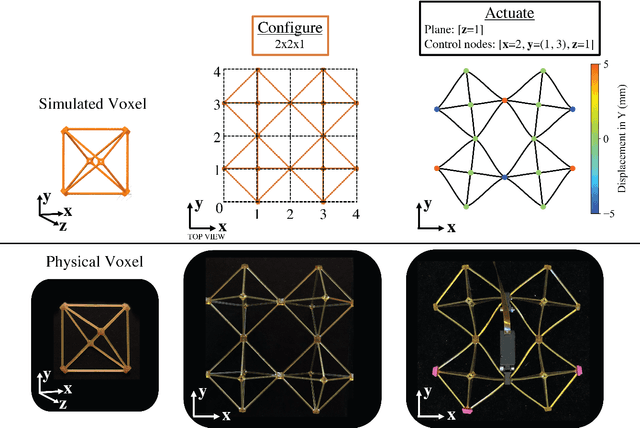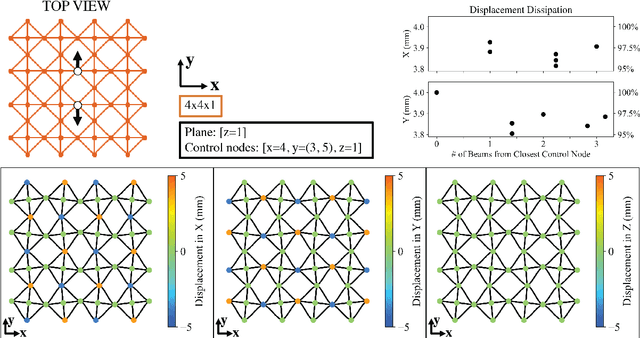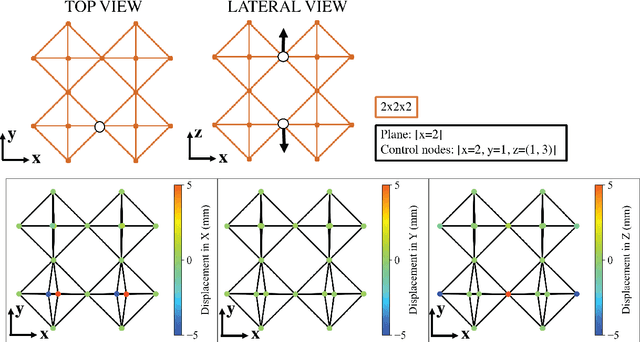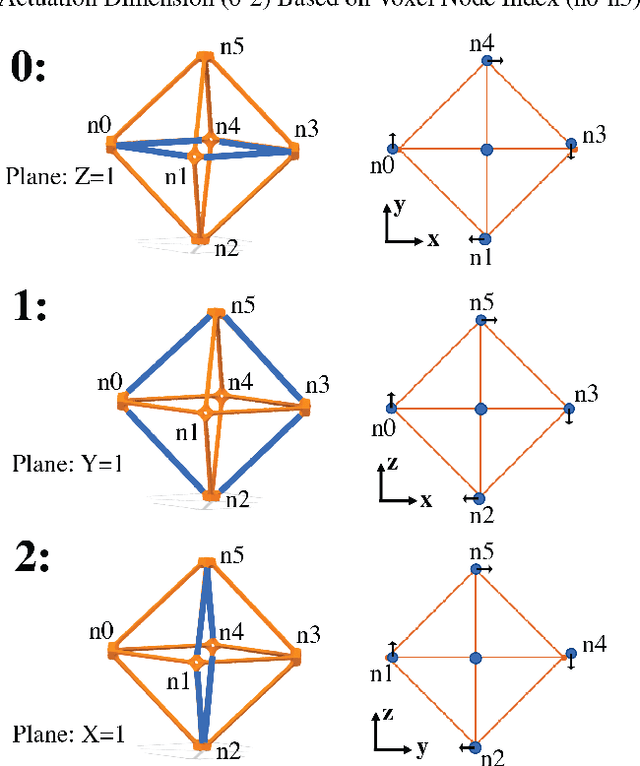Nicholas Cramer
A Geometric Kinematic Model for Flexible Voxel-Based Robots
Aug 21, 2021



Abstract:Voxel-based structures provide a modular, mechanically flexible periodic lattice which can be used as a soft robot through internal deformations. To engage these structures for robotic tasks, we use a finite element method to characterize the motion caused by deforming single degrees of freedom and develop a reduced kinematic model. We find that node translations propagate periodically along geometric planes within the lattice, and briefly show that translational modes dominate the energy usage of the actuators. The resulting kinematic model frames the structural deformations in terms of user-defined control and end effector nodes, which further reduces the model size. The derived Planes of Motion (POM) model can be equivalently used for forward and inverse kinematics, as demonstrated by the design of a tripod stable gait for a locomotive voxel robot and validation of the quasi-static model through physical experiments.
 Add to Chrome
Add to Chrome Add to Firefox
Add to Firefox Add to Edge
Add to Edge